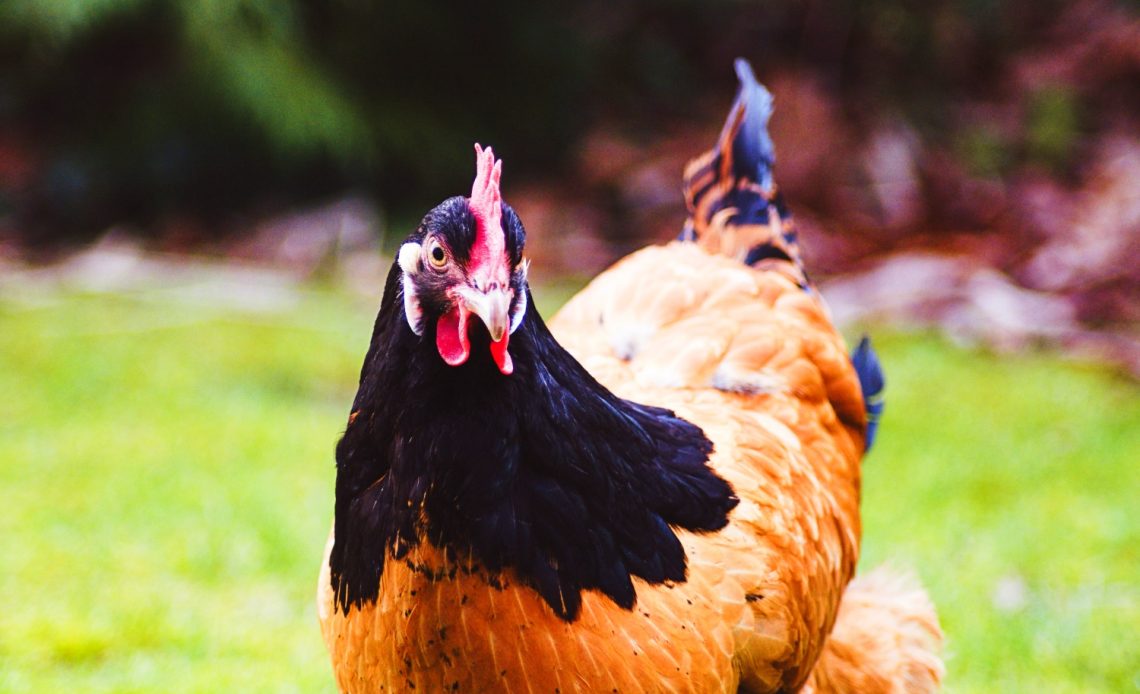

We’re here to help! Wild Yards is a completely free website that is 100% dedicated to helping you create a wildlife-friendly, sustainable yard. Read more
WildYards is reader-supported. When you buy a product through a link on our site, we may earn a comission. Every product is independently selected by our (obsessive) editors and our reviews are unbiased and objective. Read more about our mission or our privacy policy.
Raising your own chickens can be rewarding, but it’s not without its challenges. Chickens are curious birds, and that curiosity can land them in trouble, especially if they wander out of your backyard. But meeting all of your chickens’ dietary needs can be just as challenging as keeping an eye on them. Whether they’re being raised as egg-layers or broilers, chickens rely on a variety of foods to stay healthy. If you have a vegetable patch, that can help you supplement your flock’s diet. Chickens enjoy tomatoes, strawberries, broccoli, and many other garden favorites. But can chickens eat collard greens, too?
Yes, chickens can eat collard greens. In fact, they love them! These leafy green veggies are easy to grow, and they’re an excellent source of moisture and fiber. Collard greens are also rich in calcium, phosphorus, and vitamin K, three nutrients that help keep chickens healthy and support egg production.
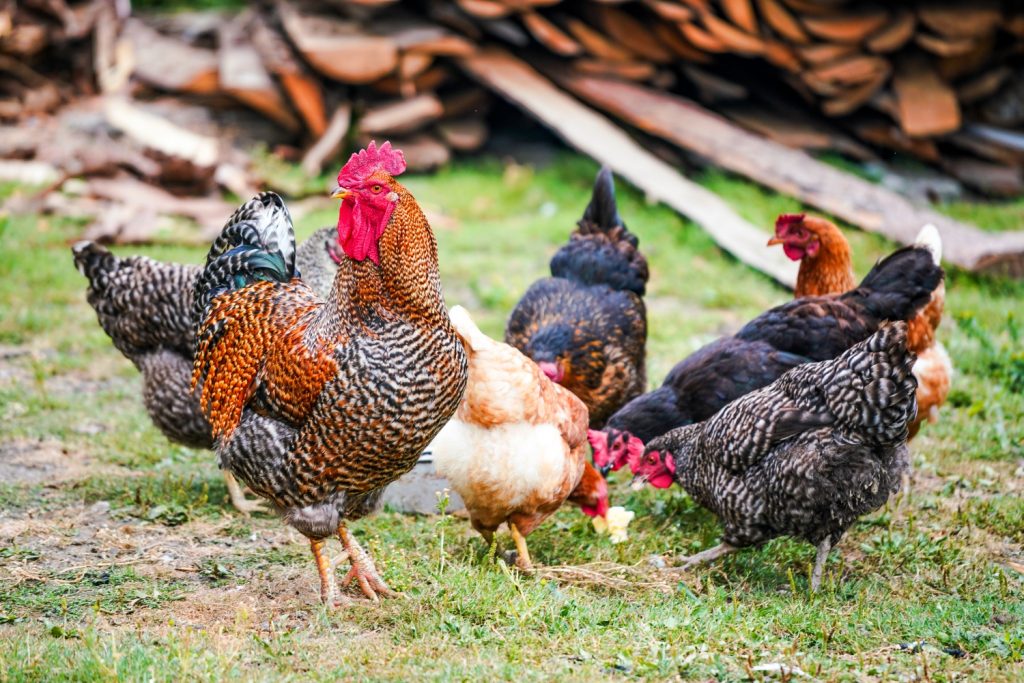
Is it safe for chickens to eat collard greens?
It’s not only safe for chickens to eat collard greens, but it’s actually recommended. Collard greens are a nutritious source of roughage for your flock to nibble on. They provide chickens with the fiber they need to keep their digestive systems in good working order. They also help keep your chickens hydrated as they search for food, which makes them a fantastic summertime treat.
Even though you may not want to find your chickens traipsing through your vegetable patch, there’s no need to worry about them if you discover they’ve pecked all of your collard greens. Collard greens pose no threat to your chickens’ health, and it’s okay for them to snack on them now and then.
Are collard greens healthy for chickens to eat?
Collard greens are nutritious for chickens for the same reasons they’re nutritious for us humans. For starters, they’re an excellent source of vitamins and minerals. Collard greens contain phosphorus, calcium, and vitamin K, three essential nutrients for egg layers in particular. Hens require more of these nutrients (especially calcium) to produce thick, sturdy eggshells. Without them, egg production suffers. And the eggs you do get are of such low quality, it’s hardly worth the trouble of raising your own.
Collard greens are also rich in iron, which is essential for red blood cell production. Low iron leads to poorly oxygenated blood, which results in weak, lethargic chickens with pale wattles and combs, and sparse plumage. Feeding collard greens as part of your flock’s regular diet can help stave off these symptoms.
On top of these health benefits, collard greens also offer chickens a steady supply of vitamins A, C, and E. Vitamin A supports healthy eyes, while vitamins C and E enhance antioxidant activity, working to support the immune system and grow healthy joints, skin, and feathers.
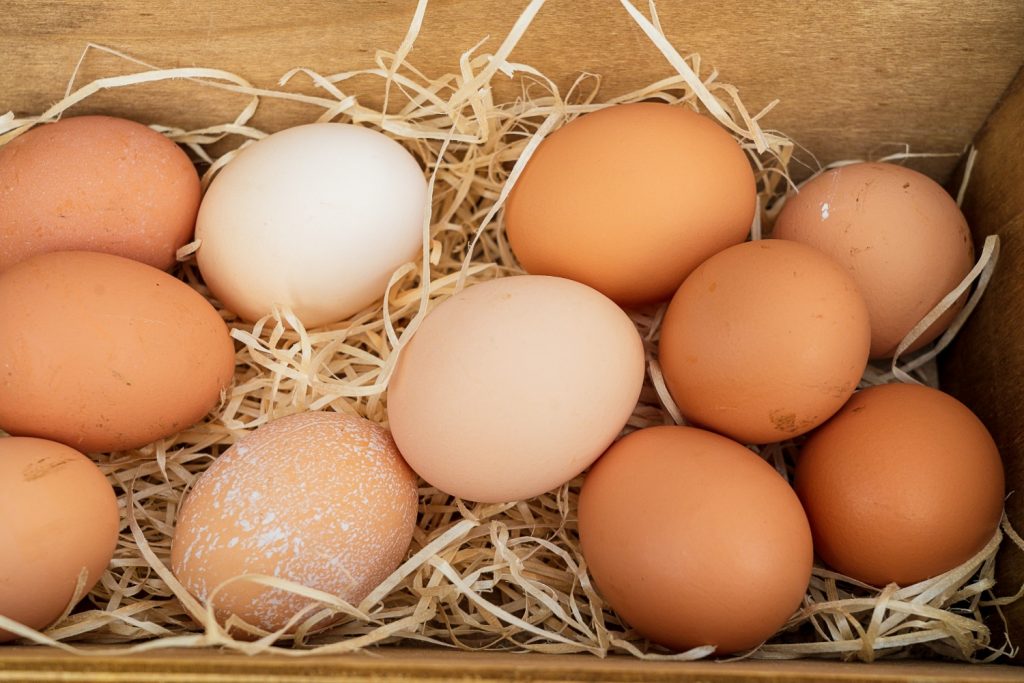
How should you prepare collard greens for your chickens?
If you haven’t sprayed your collard greens with any chemicals, then you can just open up your garden gate to let your chickens in and allow them to collect the collard greens themselves. Alternatively, if you find any heads that have become infested with insects, feel free to uproot them and set them where your chickens are sure to find them. They’ll appreciate the smorgasbord of leafy greens sprinkled with tasty, protein-rich bugs.
If you sprayed your collard greens with insecticides, fungicides, or fertilizers during the growing season, you’ll need to wash them before feeding them to your chickens. Simply use a sharp pair of scissors to harvest the leaves of the collard green plant, then toss them into a colander and rinse them in cool water, scrubbing the leaves gently with your fingertips. Lay the leaves out on a tea towel and pat them dry, or allow them to air dry for a few hours. Once they’re ready, cut them into small pieces so they’re easy for your chickens to swallow.
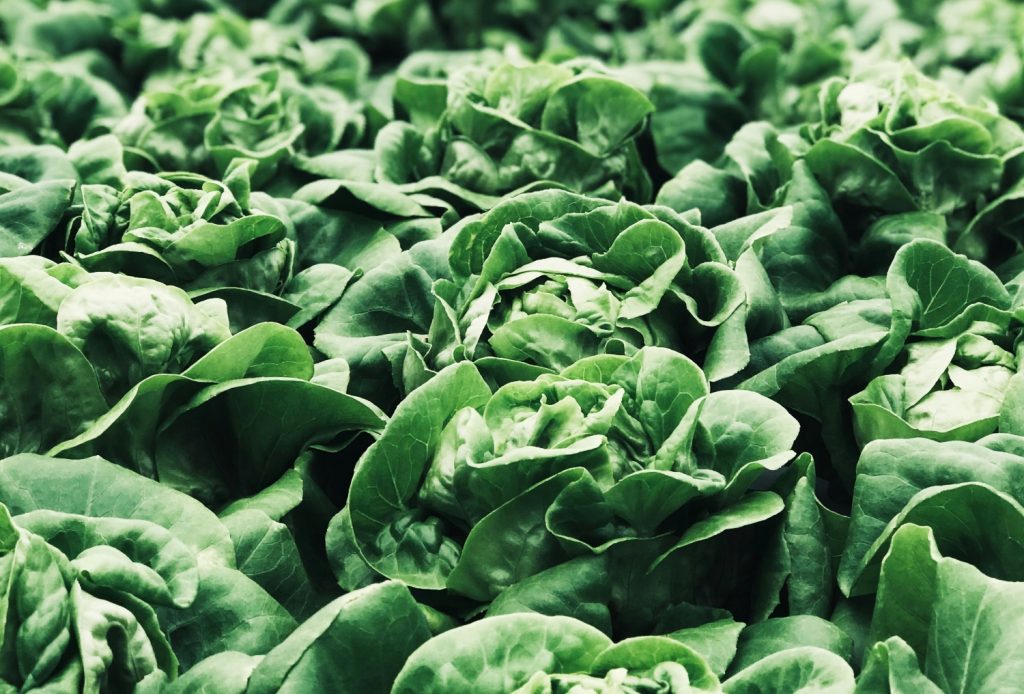
Can chickens eat cooked collard greens?
Chickens can also eat cooked collard greens, and, in fact, many chickens prefer to eat them cooked. If some of the members of your flock are on the picky side, they might appreciate it if you blanched their collard greens for a few minutes beforehand. Boiling the leaves allows them to retain much of their nutritional value, but it makes them softer and much easier for birds to swallow. Cooked collard greens are also significantly easier to digest.
Cooking your chickens’ collard greens has another benefit. See, collard greens contain oxalates, also called oxalic acids, which are naturally occurring antinutrients that leech valuable vitamins and minerals like calcium from the body. Over time, oxalates can have a detrimental effect on your health, taxing the kidneys and even contributing to kidney stones. And they’re just as bad for chickens as they are for people.
Blanching collard greens, even for just 3 minutes, helps to neutralize these hazardous compounds. This way, they won’t compromise the health of your flock, or rob your laying hens of the nutrients that they need to produce.
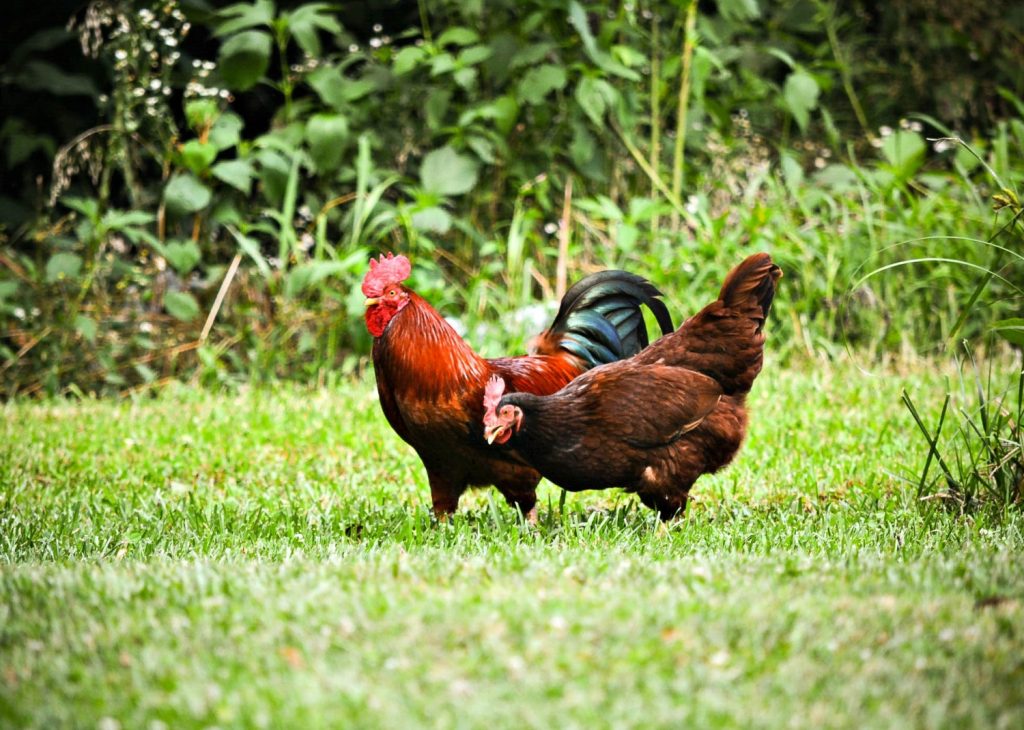
How should you serve collard greens to your chickens?
You can serve freshly blanched collard greens to your chickens by ladling them onto your finest silver serving platter and setting it out in their coop to peruse at their leisure. We’re kidding, of course. Jokes aside, all you have to do is leave a large spoonful of cooked collard greens in a small dish and set it where your chickens will find it. Easy peasy.
Since chickens like to forage for food, you can also try scattering freshly washed, uncooked collard green pieces throughout your backyard. Tossing strawberry tops, dehydrated mealworms, and sunflower seeds into the mix adds variety and helps keep your chickens busy so they don’t get into any mischief.
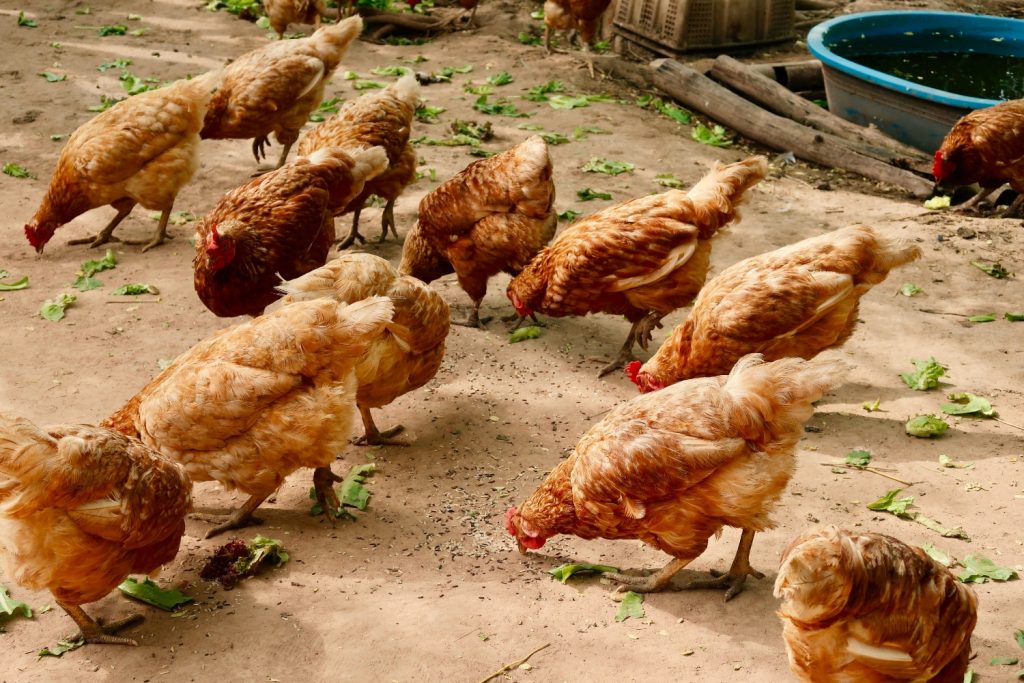
How often should you feed collard greens to your chickens?
You can feed your chickens collard greens daily, but 2 to 4 times a week is sufficient. This will ensure that they get enough of the plant’s valuable vitamins and minerals without causing nutritional imbalances. Be sure to include other vegetables and fruits for your chickens to peruse as well to make sure they receive a balanced diet.
If you leave cooked collard greens out for your chickens, inspect the dish daily and toss them out when they go bad. Chickens will eat just about anything, including rancid leftovers. So clean out their food dishes on a regular basis to get ahead of the problem.
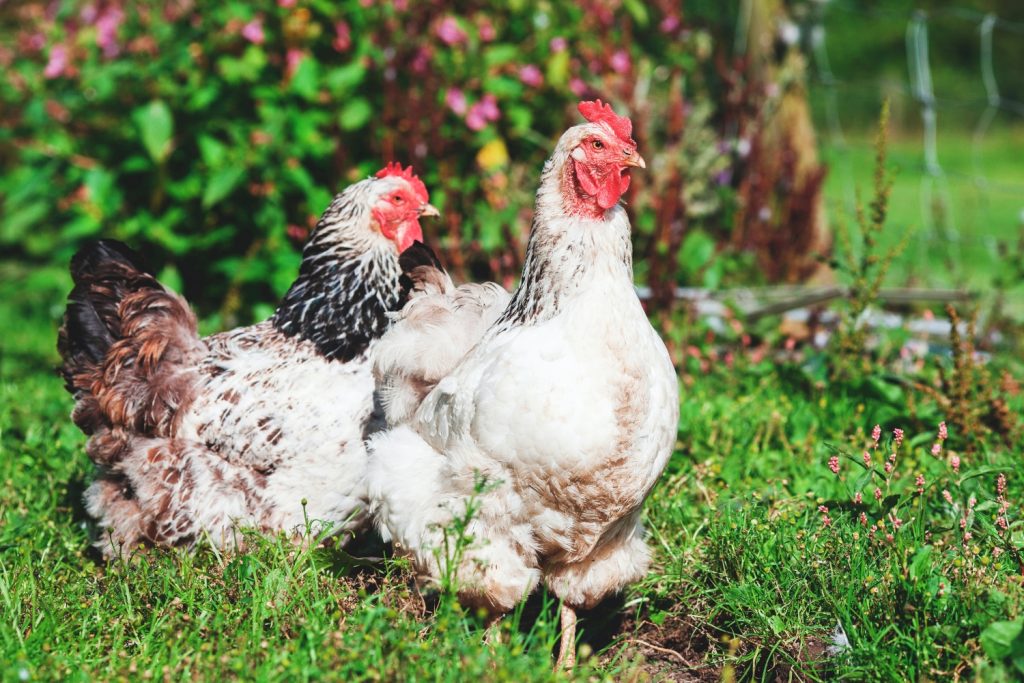
What else can you feed your chickens?
Chickens are omnivores, and on top of that, they’re instinctive foragers. They like to sample a variety of foods, rather than focus on eating one thing all the time. While the bulk of your chickens’ diet should consist of a high-quality layer of broiler feed, supplemented with some chicken scratch, they also need plenty of grasses, fruits, and vegetables in their diet to thrive.
Fresh timothy grass and dehydrated alfalfa in the form of rabbit food will provide your chickens with a healthy dose of fiber. But don’t forget to offer your flock an array of fresh fruits and vegetables to peruse, too. Chickens love squash, pumpkins, watermelons, apples, blueberries, cauliflower, cucumbers, and green beans. The more types of produce you offer them, the healthier they’ll be.
As important as it is to make sure your chickens eat all of the right foods, it’s just as important to make sure they don’t eat any of the wrong foods. Avoid feeding your chickens processed foods, fried foods, and any prepackaged foods made for human consumption. Spinach, citrus fruits, avocados, rhubarb, and mushrooms are also bad choices for chickens. So be sure to double-check before offering your flock a new snack just to make sure it’s something that’s safe for them to eat.
Are there any downsides to feeding chickens collard greens?
There are no downsides to feeding chickens collard greens. But, there are downsides to feeding chickens too much collard greens — especially if you don’t cook them first. Overconsumption of collard greens can overload your flock’s kidneys, making it difficult for them to clear out toxins. The oxalates in collard greens can also rob your laying hens of calcium, leading to paper-thin eggshells and poor egg production.
Overfeeding collard greens may also lead to elevated levels of certain vitamins and minerals. While vitamins A, C, and E, are essential to good health, too much can cause relative nutritional deficiencies of other vitamins. Too much iron, phosphorus, and calcium can result in negative side effects, too, including fatigue, jaundice, and muscle and bone pain.
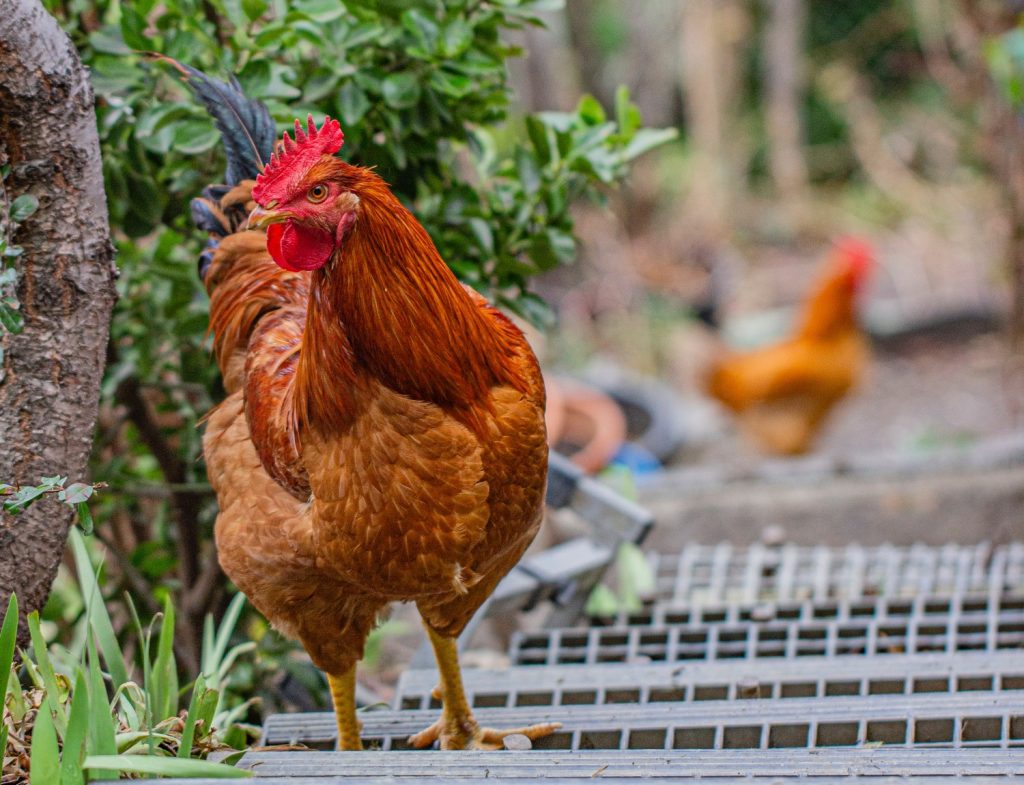
Do you have to feed your chickens collard greens?
If you grow your own vegetables, you might try planting a few heads of collard greens to see if your flock likes them. Otherwise, while collard greens can be highly beneficial for your chickens’ health, you don’t have to go out of your way to incorporate them into their diet. As long as you give your chickens plenty of other fresh leafy greens, they’ll be fine.
If you’re careful to prepare them properly and include them only as a small portion of your chickens’ regular diet, collard greens are a safe, nutritious snack for your flock to enjoy.
